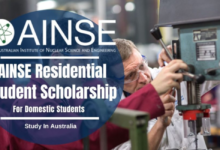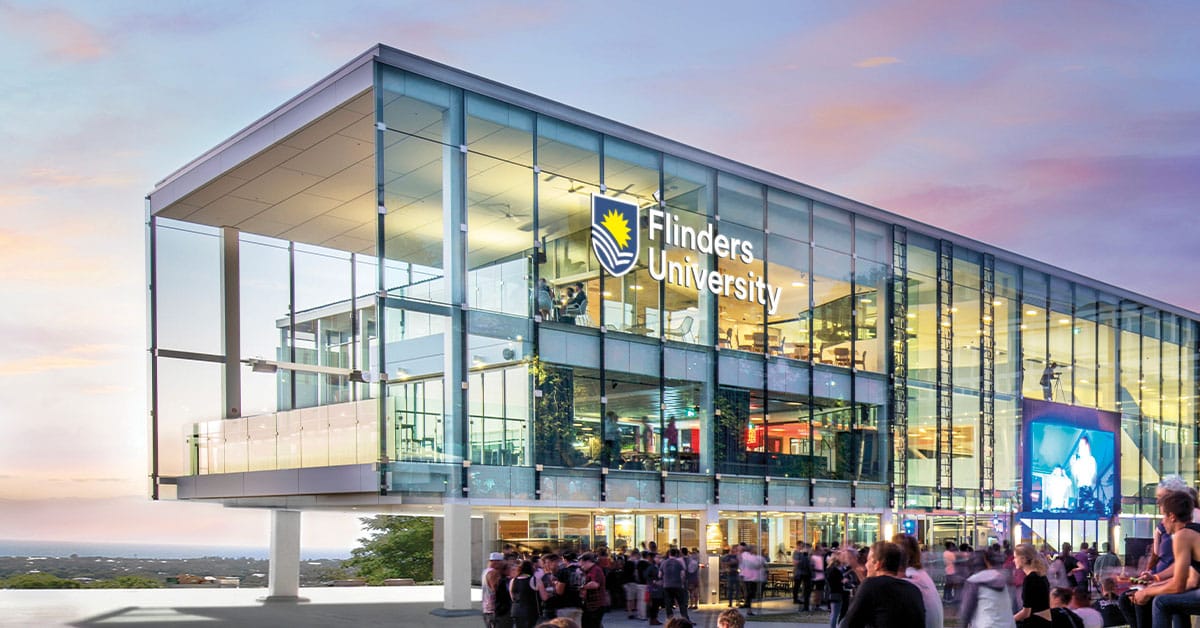Investigating the Host-Pathogen Interface of Mycobacterium abscessus Infection at the University of Technology Sydney, Australia 2023
Application is now open for the Investigating the Host-Pathogen Interface of Mycobacterium abscessus Infection at the University of Technology Sydney. Interested applicants are encouraged to send their applications in before the deadline date.
About the University of Technology Sydney and Scholarship
The university fosters the economic, social, and cultural success of our communities at UTS, a public university of technology. They are dedicated to research, innovation, and the transmission of information of public importance, and they judge their success by the accomplishments of our students, employees, and partners.
Outstanding individuals with training in biomedical sciences, pharmacology, pharmacy, or a related field are encouraged to apply for a fully supported Ph.D. fellowship at the Centenary Institute’s Centre for Inflammation, which will be supervised by Dr. Guy Lyons and Prof. Phil Hansbro.
Rapidly proliferating Mycobacterium abscessus is frequently linked to pulmonary and extrapulmonary illness, especially in those with cystic fibrosis (CF) or chronic obstructive pulmonary disease (COPD). M. abscessus has a 40% cure rate and is frequently linked with poor clinical results since it is innately resistant to several first-line antimycobacterial medications. Using a combination of cellular and animal models, this study will analyze the host-pathogen interface of M. abscessus infection to pinpoint new pathogenic characteristics and host pathways necessary for infection.
Details about Investigating the Host-Pathogen Interface of Mycobacterium Abscessus Infection at the University of Technology Sydney:
Scholarship Sponsor: University of Technology Sydney, Australia
Scholarship Value: $32,500 per year (RTP Stipend rate, indexed annually); additional funds ($7.5k) during the PhD for travel and other PhD-related expenses.
Number of awards: N/A
Study level: PhD
Host Institution(s): University of Technology Sydney, Australia
Eligibility Criteria for Investigating the Host-Pathogen Interface of Mycobacterium Abscessus Infection
Candidates are advised to meet the following requirements to be eligible for the Investigating the Host-Pathogen Interface of Mycobacterium Abscessus Infection at the University of Technology Sydney:
- Candidates must be either nationals of New Zealand or permanent residents of Australia.
- Candidates must be holders of a bachelor’s degree in a biological or medical field.
- Have a proven track record in the classroom and have laboratory experience
- Completion of an Honours degree with a First Class, Second Class, or Division 1; an MSc in Research; or an MSc in Coursework with a research thesis lasting at least six months.
Selection Procedure
- Possess great communication skills, the capacity to work with a variety of individuals and within existing collaborative teams, and be highly driven and capable of working independently.
- Possess an understanding of the needs and environment of a research or laboratory
- Know how to use common research applications on a computer.
- Be able to conduct in vivo mouse models. be able to keep meticulous lab records. Have experience with common lab techniques like ELISA, RNA extraction, reverse transcription, qPCR, western blotting, cell culture, aseptic technique, histological analysis, Immunohistochemistry, Immunofluorescence, flow cytometry, and primer design.
Additional Information
The large family of microorganisms known as Mycobacteria is divided into two main groups: pathogens that cause tuberculosis (TB), such as Mycobacterium tuberculosis, and non-tuberculous mycobacteria (NTM). There are more than 200 species of NTM bacteria, making them a varied collection of microorganisms. Many of these species are non-hazardous to human health since they are environmental organisms that may be found in soil and water sources.
Nevertheless, several of these species are known to infect people who have weakened immune systems or who have underlying anatomical or genetic problems. In first-world nations, the reported prevalence of NTM infection is geometrically rising and frequently surpassing new infections linked to TB, underscoring this impending public health emergency.
A rapidly growing mycobacterium called Mycobacterium abscessus is frequently linked to pulmonary and extrapulmonary illness, especially in people with cystic fibrosis (CF) or chronic obstructive pulmonary disease (COPD). Due to its inherent resistance to many common first-line antimycobacterial medications, M. abscessus is becoming more and more challenging to treat, frequently having subpar clinical results and a cure rate of just about 40%.
Its understanding of the pathogenesis of M. abscessus has improved significantly over the past ten years, but neither the host nor the pathogen factors that affect the course of an infection are fully understood. In this study, scientists will analyze the host-pathogen interface of M. abscessus infection using a combination of cellular and animal models to pinpoint new pathogenic characteristics and host pathways necessary for infection.
With the use of the project’s renowned mice models of chronic respiratory illness, the study will further investigate the genetic factors inside the host that regulate M. abscessus infection. They will look at genetic markers for M. abscessus that are associated with various infection outcomes and learn how these control the host-pathogen interaction when an infection is present. Finally, they will make use of these discovered pathways to suggest fresh host-directed treatments that could improve host clearance of M. abscessus infection.
Application Procedure for Investigating the Host-Pathogen Interface of Mycobacterium Abscessus Infection
Prof. Phil Hansbro should be contacted by potential candidates for more information and instructions on how to apply. Please submit your resume along with a brief statement outlining your interest in the project. Information about the shortlisted applicants will be provided. Please get in touch with Prof. Phil Hansbro if you want more details.
The Submission Deadline is: 01 November 2023
Not interested in this particular scholarship? See other Australia scholarships here.








